Percy French Biography
- Growing up at Cloonyquin
- Education in England and at Trinity College Dublin
- Percy French in Cavan
- Percy French in Dublin
- The emigrant years: London and further afield
- World War I and final years
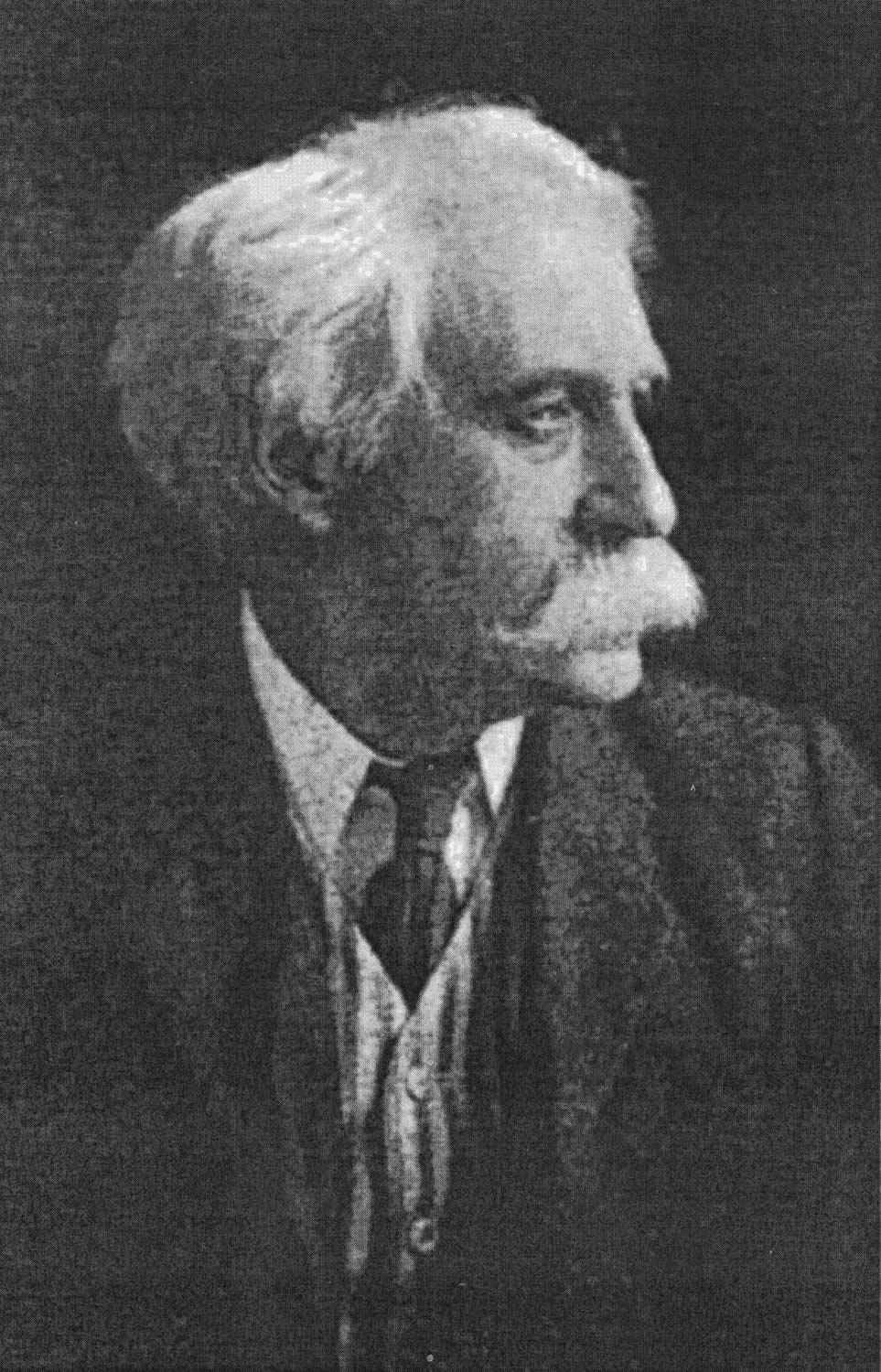
Percy French (1854-1920)
Growing up at Cloonyquin
William Percy French, songwriter, singer, musician, humourist, and artist, was born on 1 May 1854 at Cloonyquin House, Co. Roscommon. He was the second son and the third child of the nine children born to Christopher French (1821-1897), a landlord, and Susan Emma French (née Percy), (1827-1914), the daughter of the Reverend William Alexander Percy (1796-1869), rector of Kiltoghert Church of Ireland parish in Co. Leitrim and his wife, Elizabeth Percy (née Lloyd) (c. 1800-1847).
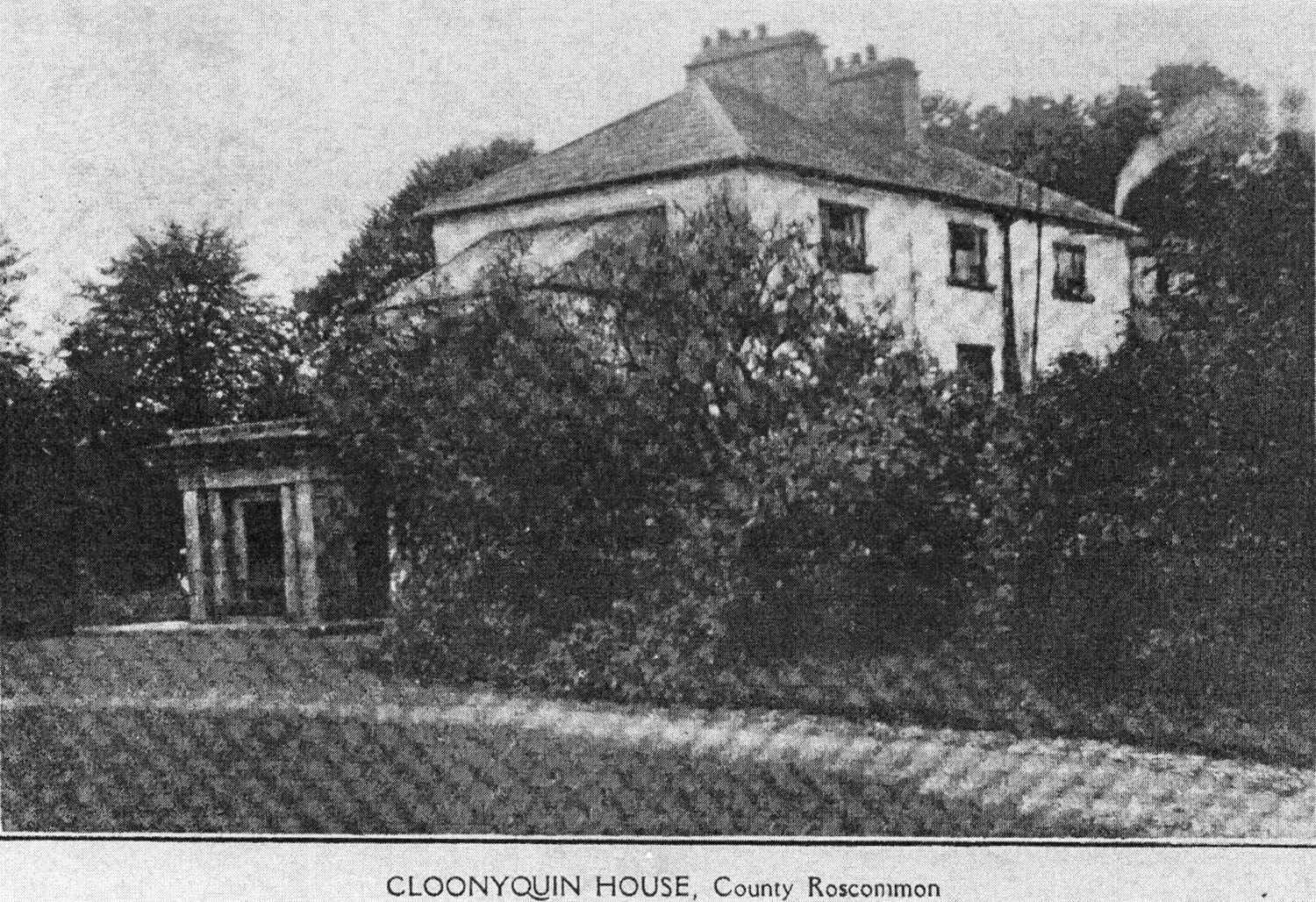
Cloonyquin House
French’s childhood was an idyllic one in many ways: Cloonyquin House was a marvellous place in which to play hide-and-seek and also a game which the boisterous Percy and his siblings called ‘The Lion Hunt’, and in his quiter moments Percy loved drawing, carving wooden figures with a penknife and playing with tin soldiers. He also participated in such outdoor pursuits as cricket, fishing and horse-riding at Cloonyquin. It is likely that the good relations which prevailed between Christopher French and his tenants contributed to the harmonious atmosphere that prevailed at Cloonyquin when Percy was growing up there.
Education in England and at Trinity College Dublin
When Percy was ten years old the French family moved to Derbyshire to further the children’s education. Percy first attended for two years at the Reverend John Barton’s (1816-1875) school at Kirk Langley, before boarding from 1867 to 1871 at Windermere College, which was run by the mathematician George Hale Puckle (1825-1909).

1863 advertisement for G.H. Puckle's book on conic sections and algebraic geometry
This was followed by a year at a ‘grinding’ institution – Foyle College, in Derry, which was run by a relative of the French family, Reverend William Percy Robinson, D.D. (1845-1881) – in order to prepare for entrance to Trinity College Dublin. French’s father was keen that Percy should become an engineer by profession, which meant he first had to earn a B.A. before progressing to an engineering degree. This proved to be an unexpectedly lengthy process, as Percy was much more interested in Trinity’s social life than he was in studying, as shown by the enthusiasm with which he attended and organised concerts, entertained at parties and ‘smokers’, played the banjo and piano, took up the fashionable sport of tennis and indulged his passion for painting watercolours.
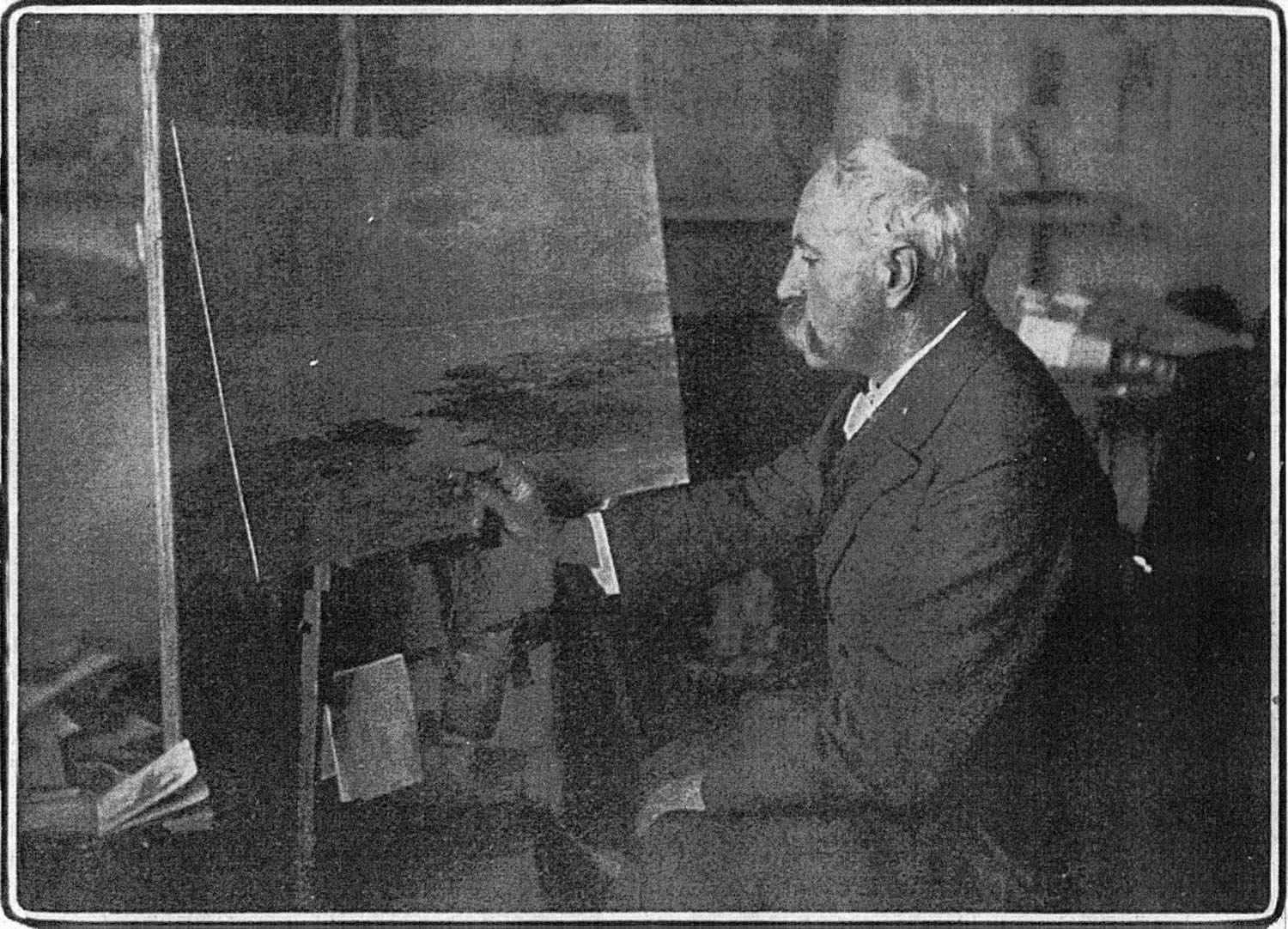
Percy French photographed in January 1906 painting with a shaving brush
Percy French in Cavan
Graduating with a B.A. in 1876 and a B.Eng. in 1881, French was employed as a temporary teacher of art at Foyle College before beginning an engineering apprenticeship with James Price (1831-1895) of the Midland Great Western Railway. At this time French considered emigrating to Manitoba, but instead in 1883 took up a post with the Board of Works, working as an inspector of loans to farmers in Co. Cavan: this job chiefly entailed inspecting sites relating to improvements to agricultural properties. His work as a self-styled ‘inspector of drains’ continued until he was made redundant in September 1888. Much of his time in Cavan was taken up with playing tennis at country houses during the summers and tobogganing, fencing and playing hockey in the winters. He also began what remained a lifelong passion – painting landscapes – and exhibited watercolours in Dublin a year after his appointment to Cavan. His fondness for musical entertainments also continued, particularly as evidenced by his playing the banjo with the Kinnypottle Komicks, a Christy Minstrel group named after the river which flows through Cavan town.
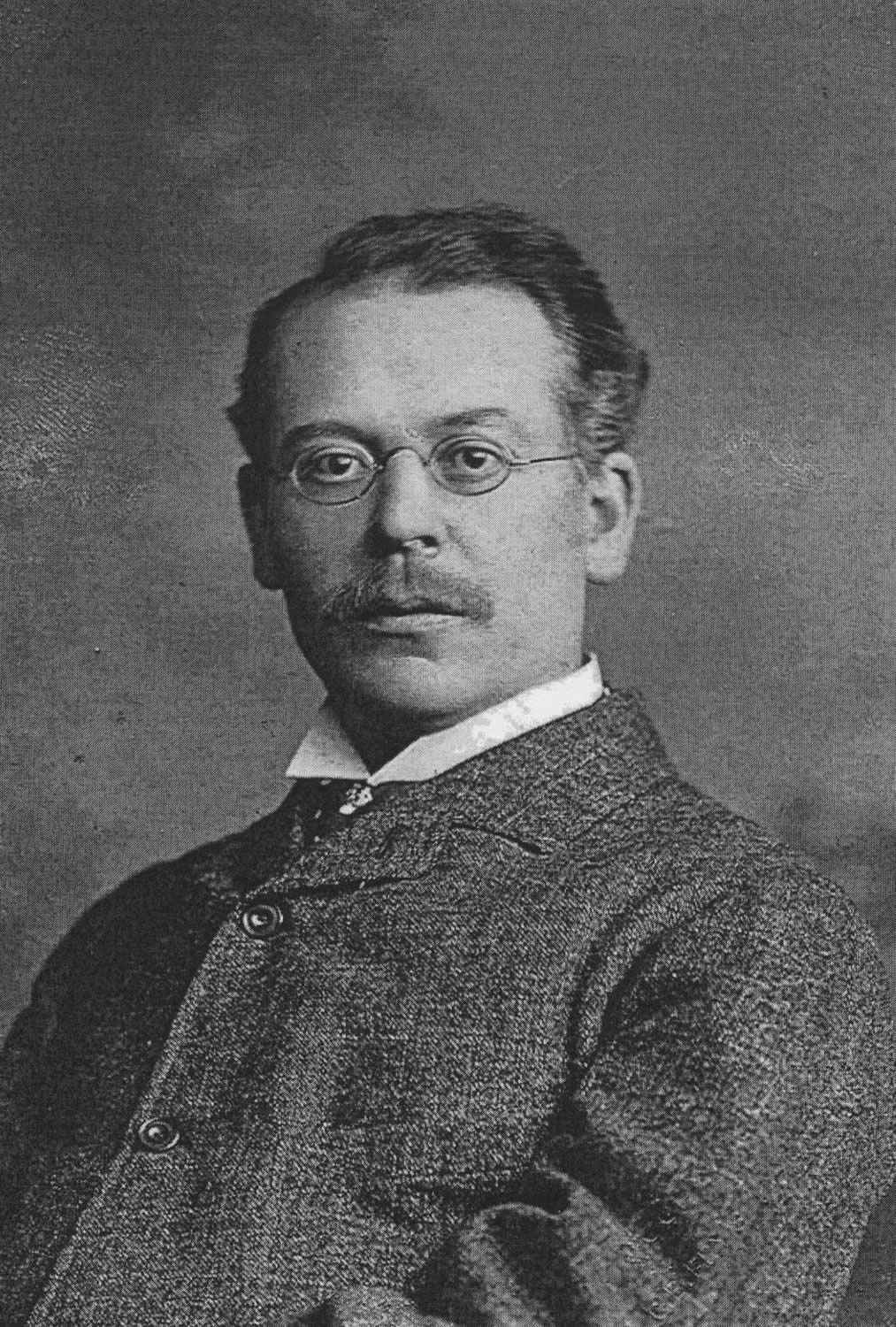
Richard James Mecredy (1862-1924)
Percy French in Dublin
After he lost his job with the Board of Works, French went to Dublin to visit Richard James Mecredy (1861-1924), editor of the Irish Cyclist, to which newspaper French had previously contributed some humorous prose and verse. He asked Mecredy for a job on the Irish Cyclist and was surprised to instead be offered the position of editor of a new comic newspaper which Mecredy was about to launch, The Jarvey. French edited this newspaper from January 1889 to December 1890.
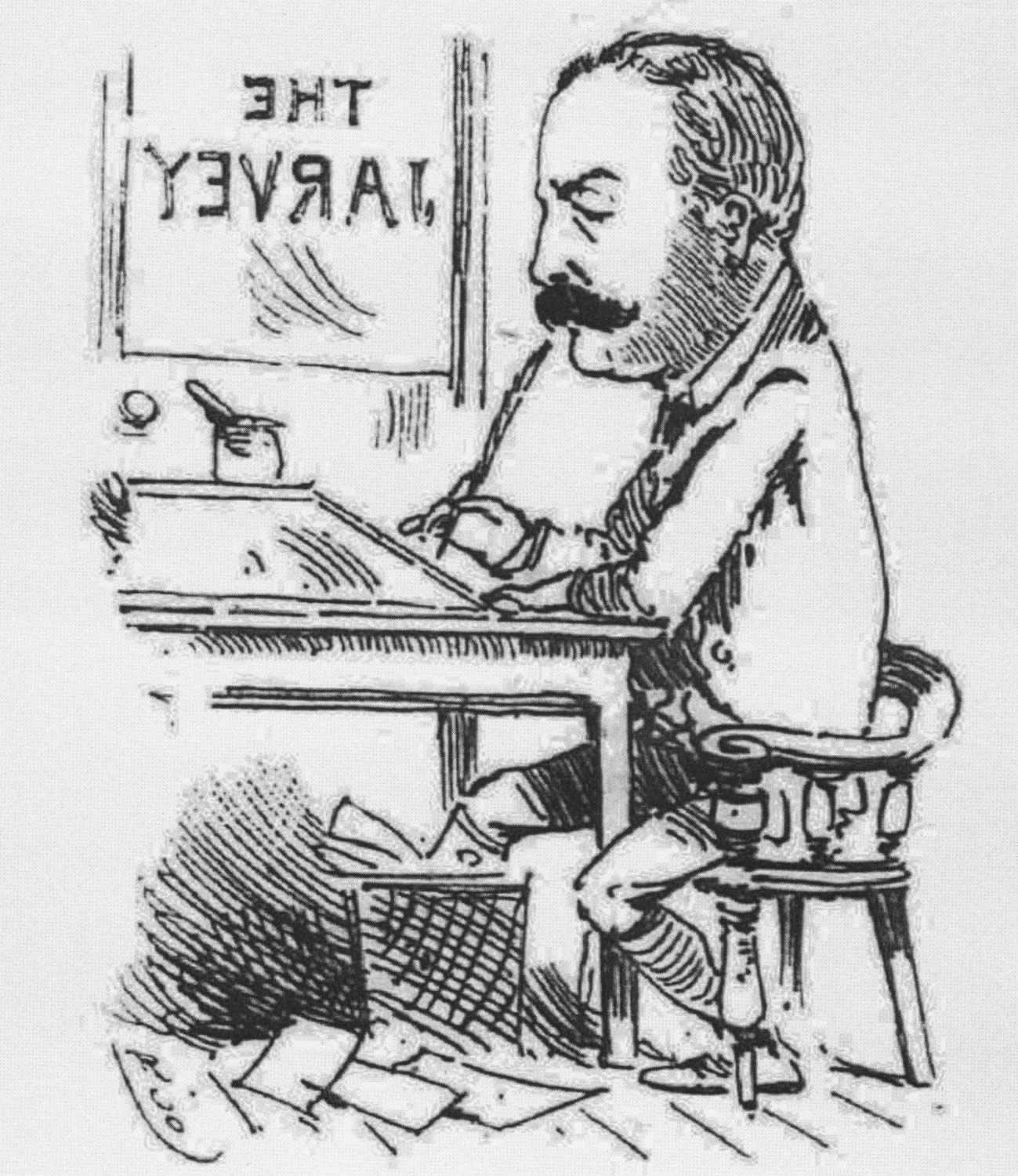
Percy French working at the editor's desk of The Jarvey
The Jarvey occasionally contained some sharp social commentary, but its contents mostly consisted of comic observations on the social world of fashionable Irish society. In this regard, it may be seen as a useful outlet for French to further hone his often idiosyncratic humorous prose and verse.
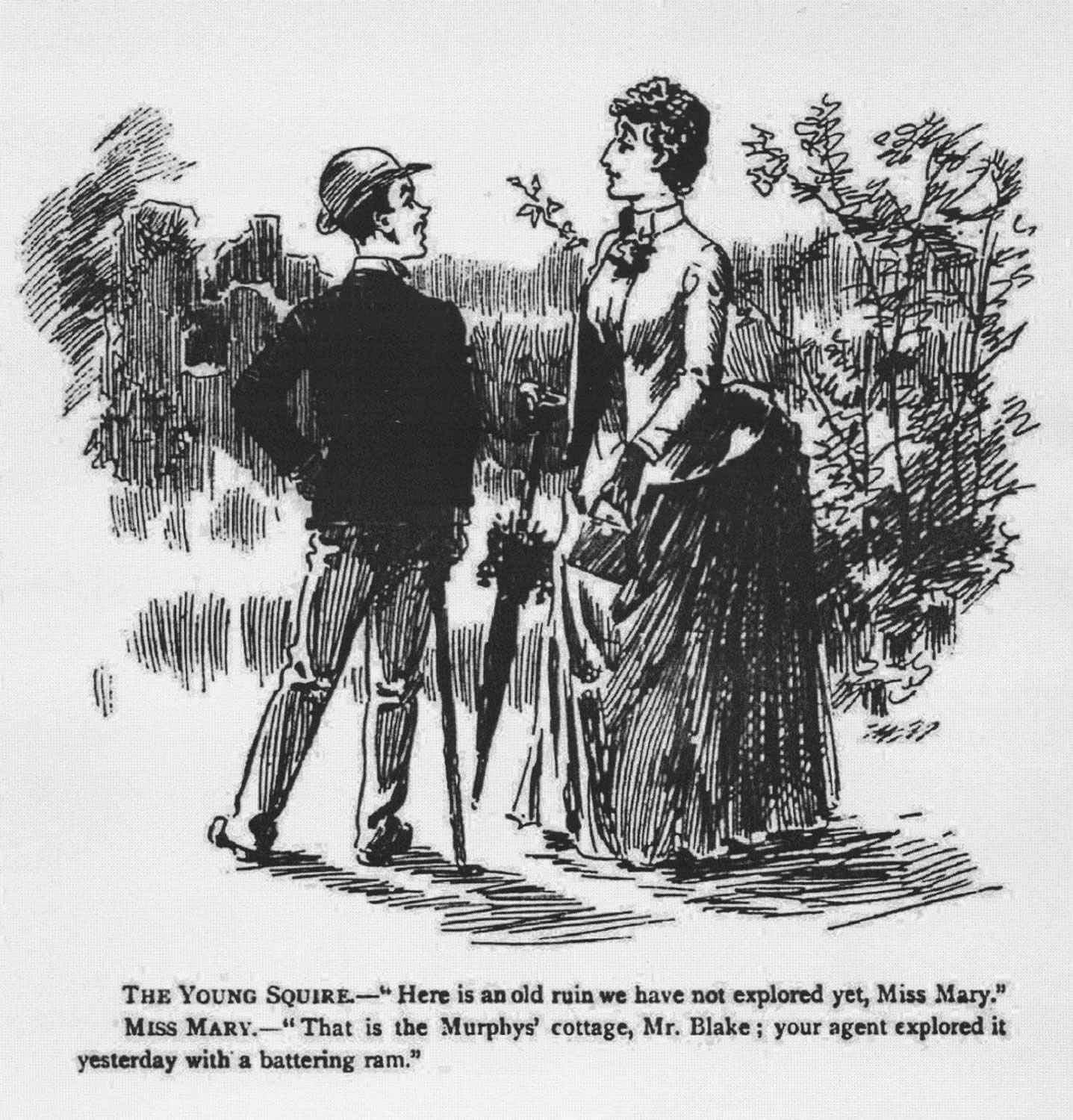
Social commentary in The Jarvey, 24 August 1889
In June 1890 French married Ethel (‘Ettie’) Kathleen Armytage-Moore (1871-1891) of Arnmore House, Co. Cavan, the second daughter of William Armytage-Moore (1806-1883), manager of the Annesley estate at Castlewellan, Co. Down, and his wife Mary Elizabeth Lockwood (née Metcalfe) (1845-1932). For a brief period the newly-weds ran a shop, ‘The Old Curiosity Shop’, at 31 Little Denmark Street in Dublin, whose main output was engravings, sketches and paintings in oils and in watercolours produced by Percy. Ethel died of septicaemia on 29 June 1891, after giving birth to a daughter, Ethel Florence Cecilia, on 5 June; her baby died on 5 July 1891 at Cloonyquin.
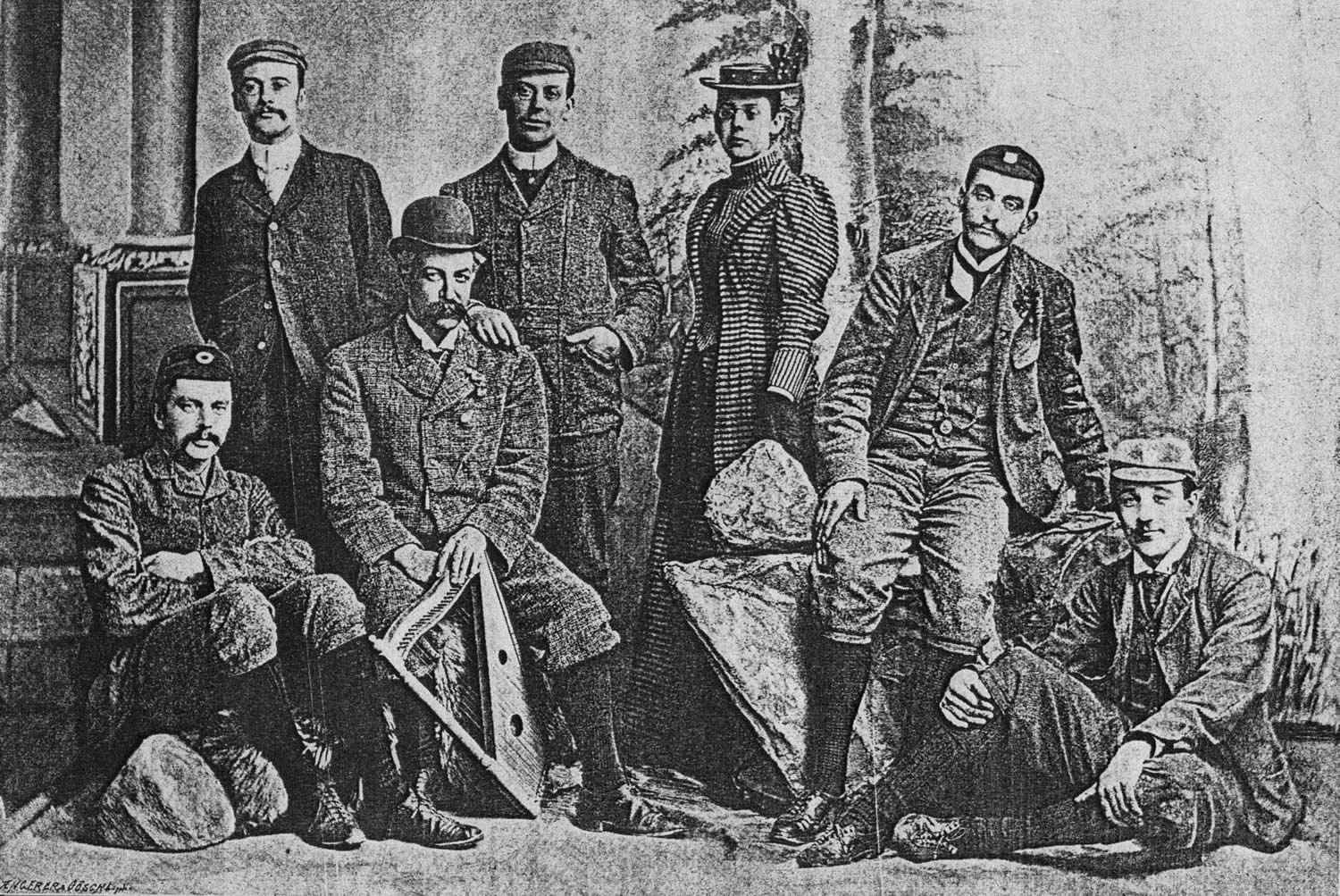
Percy French - 'The Office Lyre' and other members of the Irish Cyclist staff, 21 June 1893
A grief-stricken French threw himself into a hectic work schedule, contributing comic sketches, poetry and drawings on a regular basis to the Irish Cyclist, of which newspaper’s staff he became a permanent member, and also beginning what turned out to be a lengthy collaboration with the musician and future clergyman in the Church of England, Dr William Alexander Houston Collisson (1865-1920) in the production of several comic plays, which they performed in Dublin and Irish provincial towns.
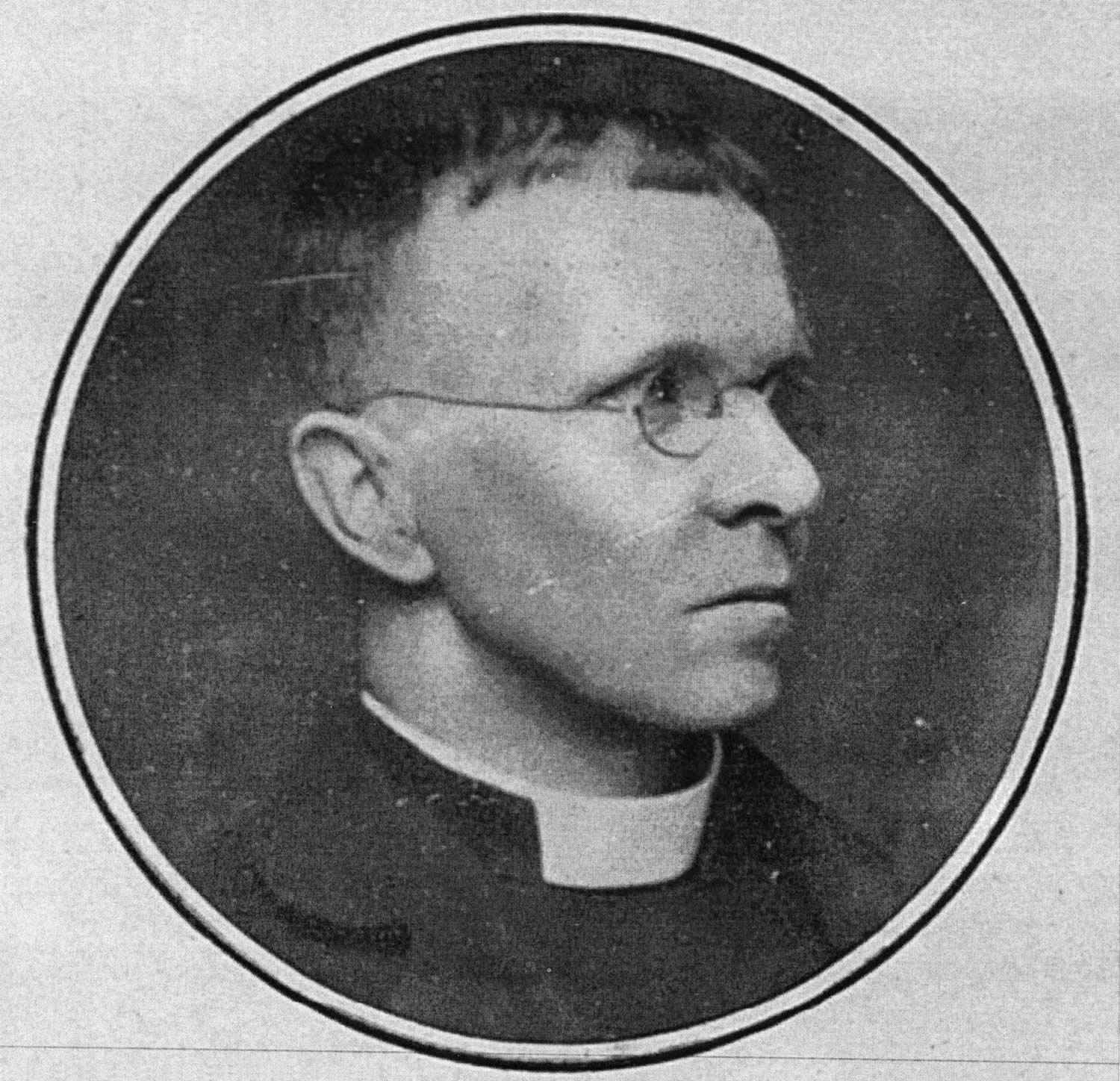
Houston Collisson photographed in December 1905
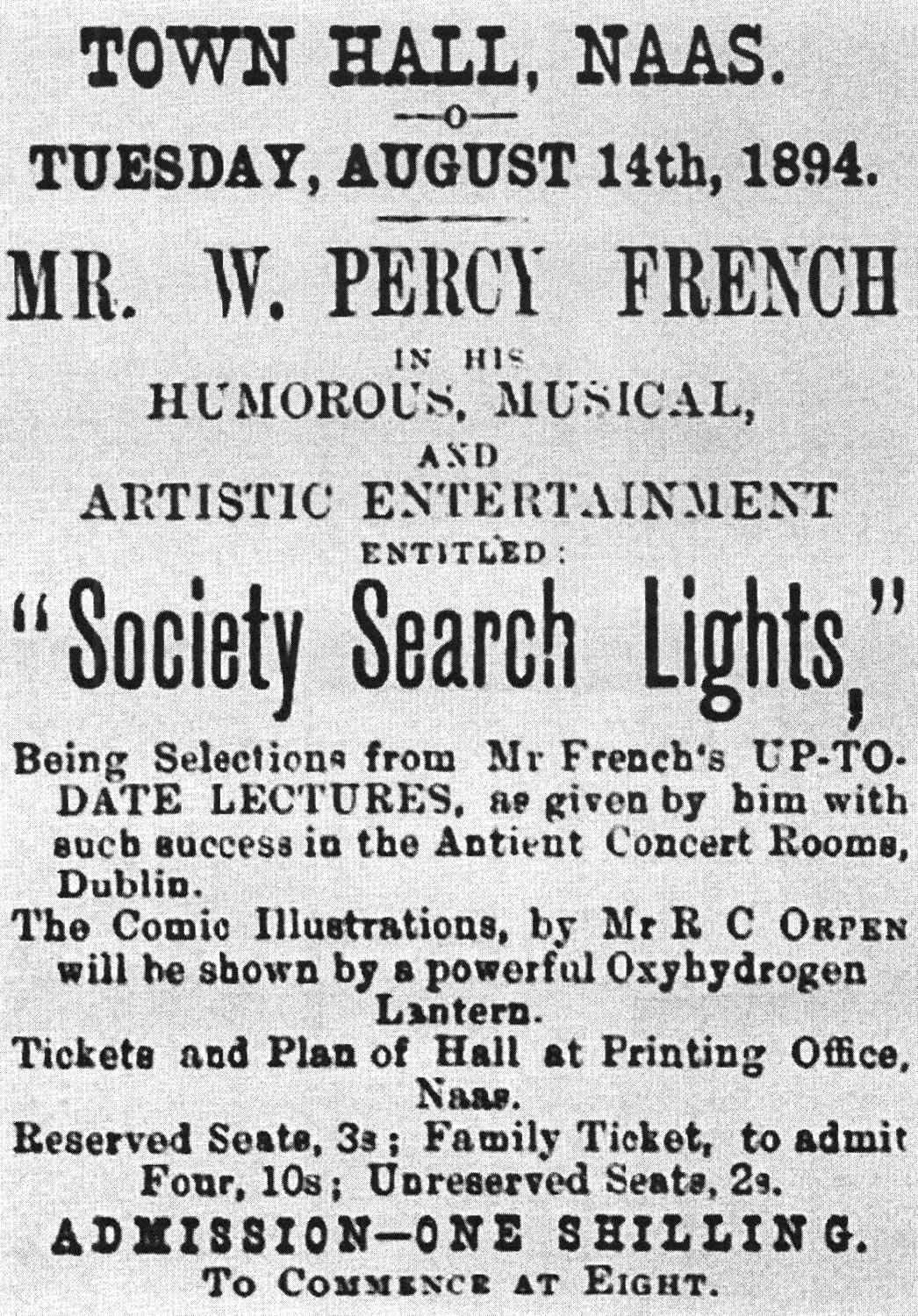
Advertisement for Percy French entertainment in Naas Town Hall, August 1894
French achieved national fame in Ireland in the 1890s with his versatile entertainments in countless Irish towns and villages, performances that included humorous songs, poems and anecdotes, slide shows, and quickly executed ‘smoke drawings’ on china plates.
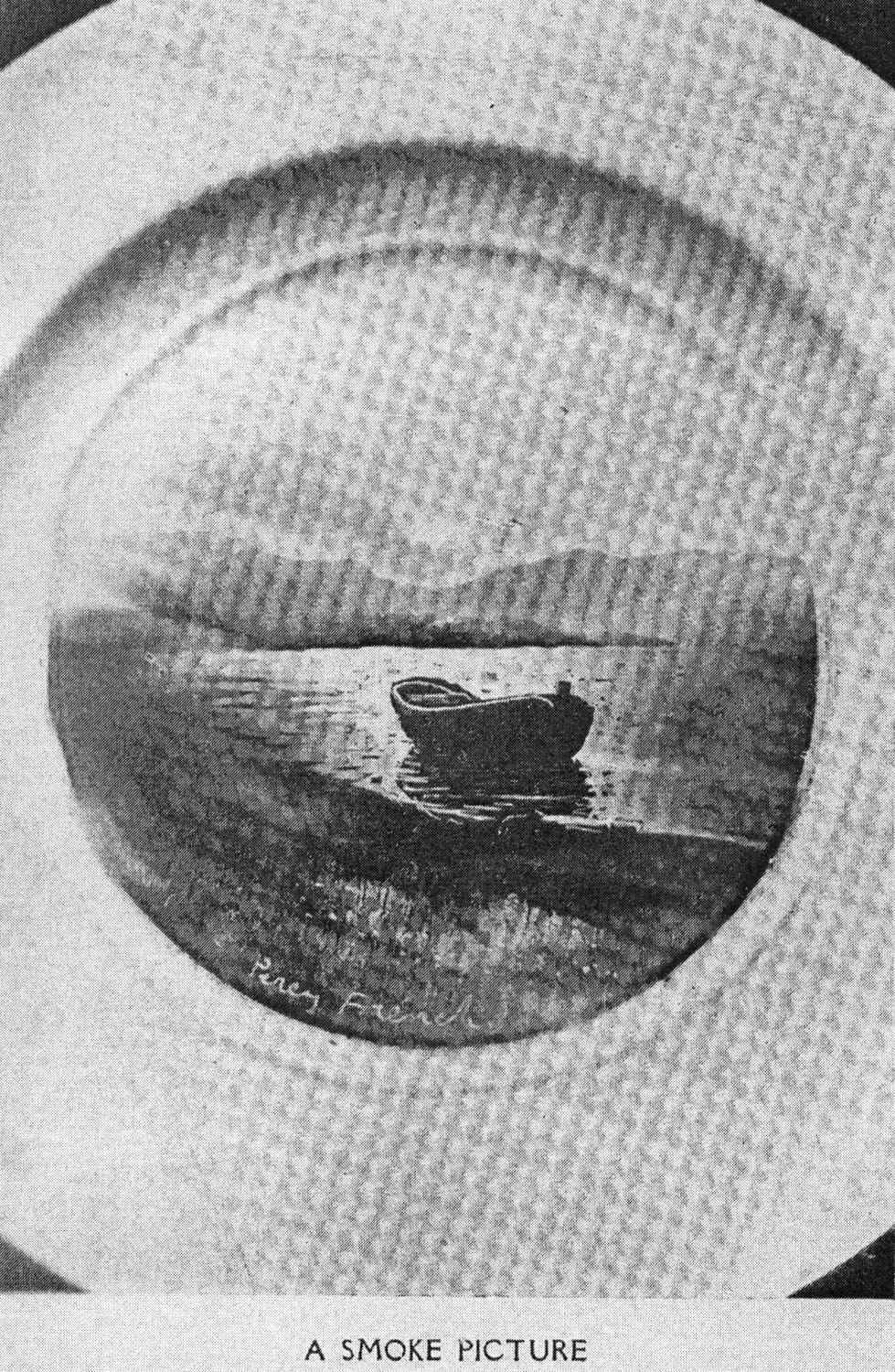
One of Percy French's smoke drawings
He also fell in love again, marrying for the second time on 24 January 1894. His bride was Helen (‘Lennie’) May Cunningham Sheldon (1868-1956), the daughter of Jonathan Sheldon (1841-1919) a mill-owner, of Burmington House, Shipston-on-Stour, Warwickshire and his wife, Mary Clementina Sheldon (née Tribe) (1847-1869). Percy and Lennie had three daughters: Ethel (‘Ettie’) Gwendoline (1894-1993), Mollie Helen (1896-1956) and Joan Phyllis (1903-1996). In 1899 French gave his first solo performance in London, to considerable critical acclaim. Two of the leading concert agencies, Ashton’s and the Lecture Agency, told him that if he would transfer to London they could provide him with enough work to make the move worthwhile, and his agent, Gerald Christie, persuaded him to make a career move to the British capital. It was on the agencies’ advice that French dropped his first name altogether for stage purposes: known as ‘Willie’ to his friends and family, he now became the stage performer Percy French. In January 1900 he and his family took up permanent residence in London.
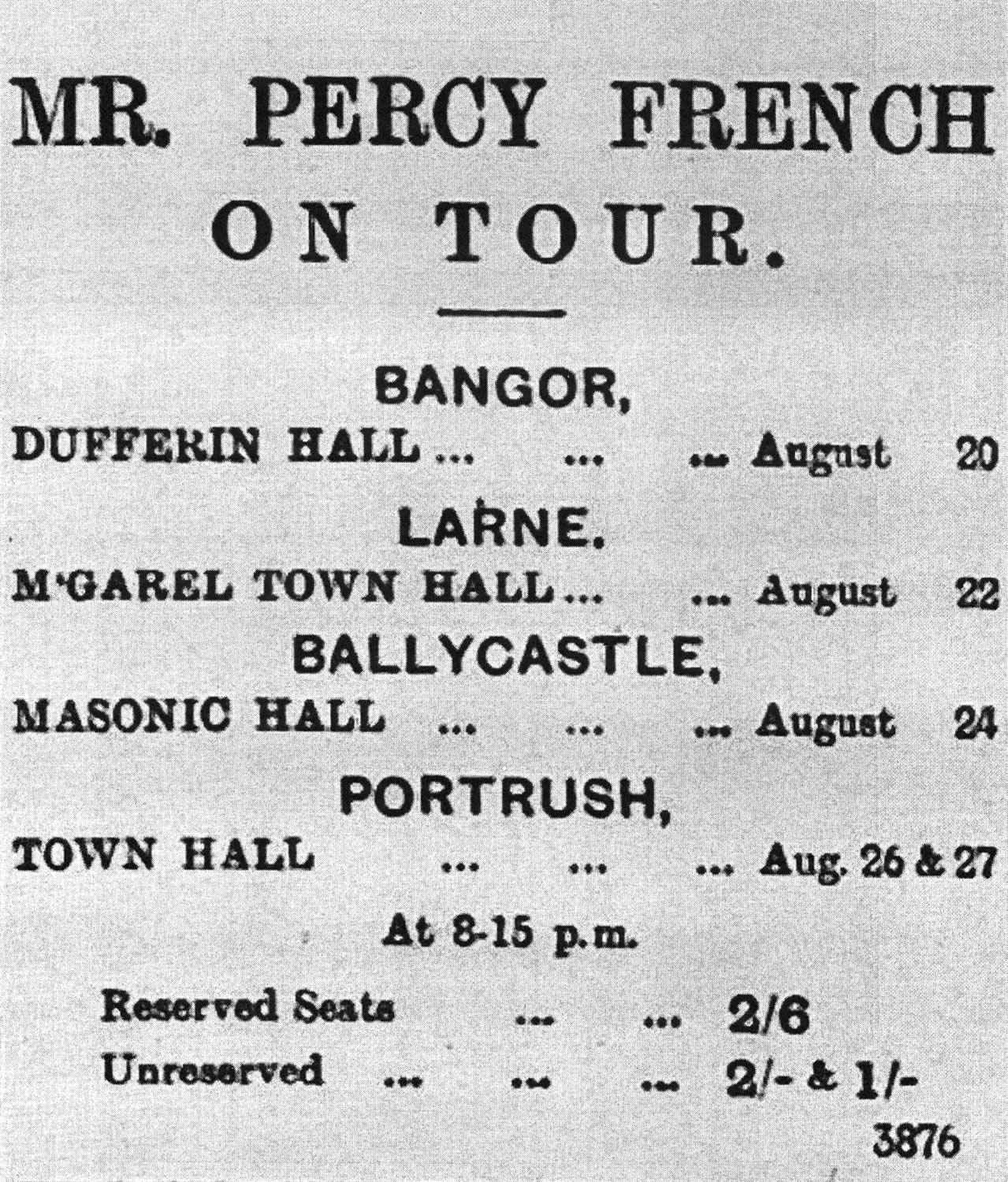
Advertisement for Percy French entertainments in various Ulster towns, August 1908
The emigrant years: London and further afield
French enjoyed further artistic success after emigrating to England, helped no doubt by the fact that gave a ‘Recital’ before King Edward VII and the prince and princess of Wales in January 1902. In Britain, a hectic round of performances in such venues as society drawing rooms, concert halls, working men’s institutes and village halls occupied his working hours outside of the summer months; he preferred touring in Ireland each summer, especially in various seaside towns in August of each year.
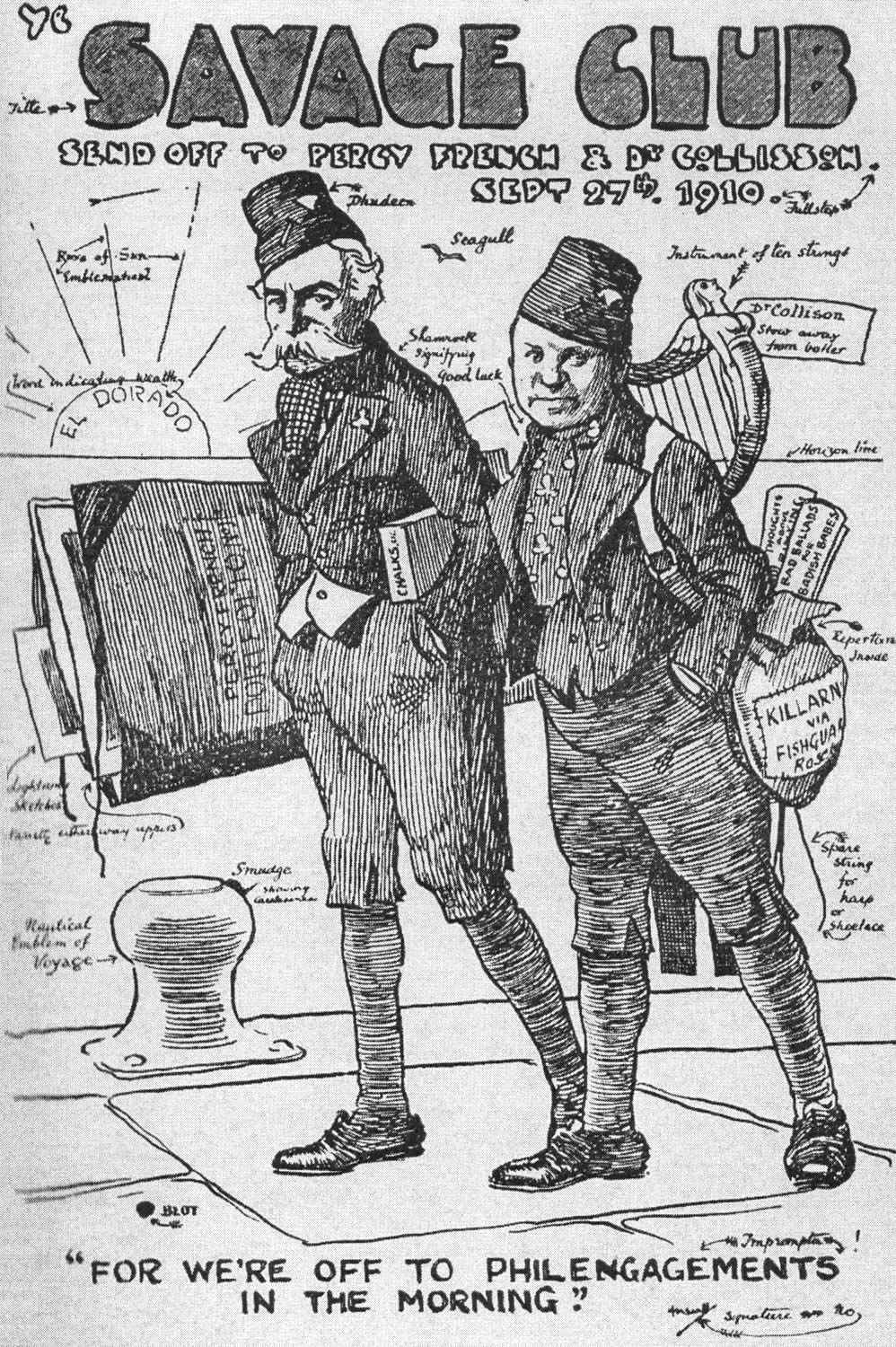
Percy French and Houston Collison embarking on their transatlantic tour in 1910
French’s tours also took him further afield than Britain or Ireland. In 1910 he and Houston Collisson were engaged by the Irish-American impresario J.C. Duff (1857-1928) to undertake a tour to Canada, the USA, Bermuda, the West Indies and Panama, while early in 1914 French went on a six-week tour in Switzerland to raise funds for the Church of England Waifs and Strays Society, a charity for which Houston Collisson and Thomas Brandreth Gibbs of Folkestone (1842-1931), the tour organiser, worked assiduously.
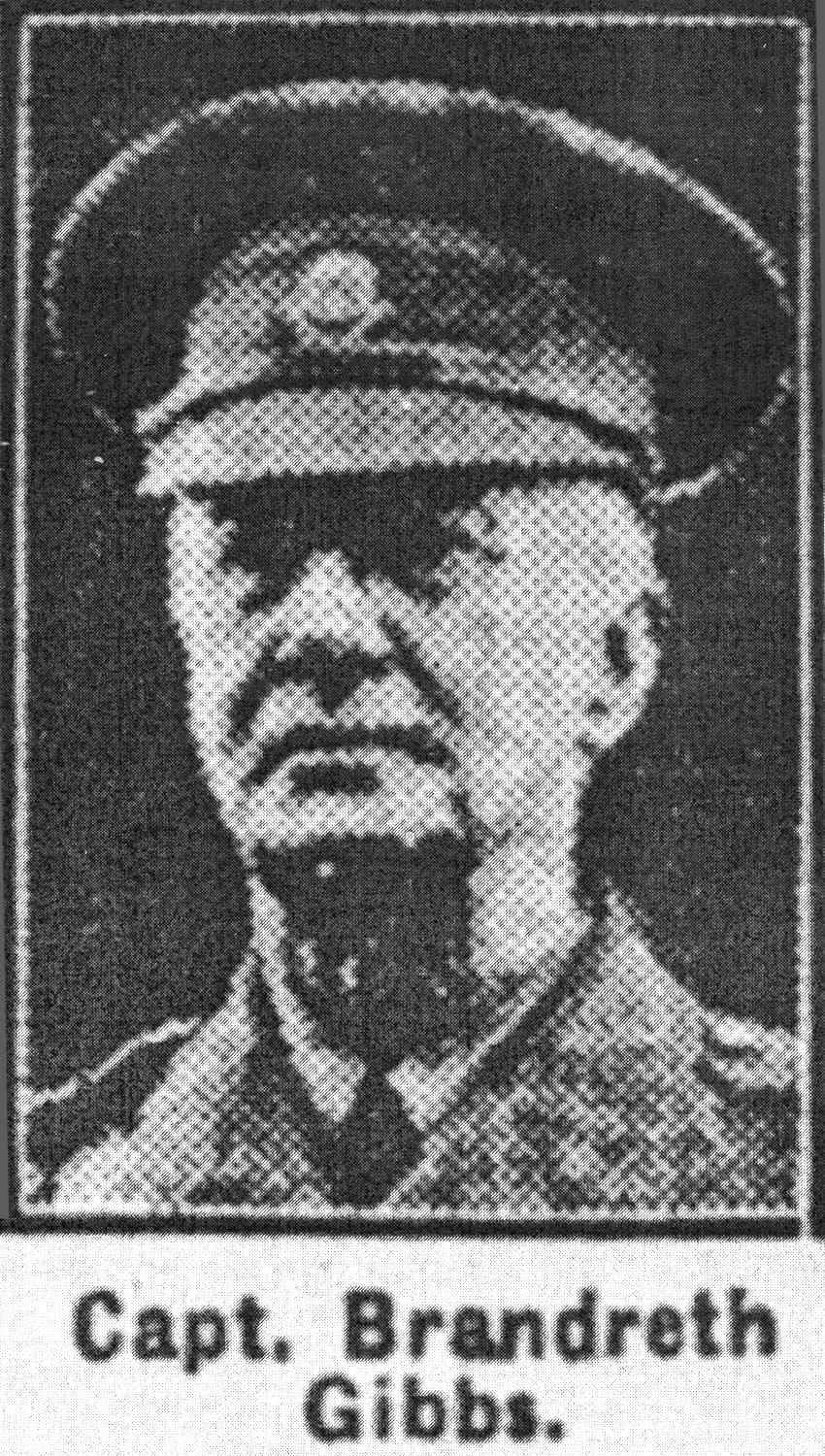
Brandreth Gibbs in military uniform in the First World War
World War I and final years
French’s tour of Irish seaside towns in August 1914 coincided with the outbreak of the First World War. During the war he continued with a demanding schedule of performances, many of which were fund-raisers for the British Red Cross or military hospitals. He also frequently helped to raise troops’ morale by his performances in the United Kingdom and Belgium and France. Two of the anti-German songs that French wrote during the war – ‘Am Tag’ (‘To the Day’) and ‘All By the Baltic Say’ – were unusual in their harsh comments on contemporary individuals or events. French’s health deteriorated after he tried to board a train at Blackrock in 1916 and was dragged along the platform. Although most Irish people eventually turned against the seemingly interminable war, French’s support for various war-related charities persisted until the conflict’s end, and he also put on several performances to aid wounded British servicemen in 1919. The final role that he played was that of the elderly schoolmaster, Matthew Kavanagh, in the comedy ‘The Letter from the Front’, in Glasgow’s Palette Club on 16 January 1920. Just over a week later, on 24 January 1920, French died, broken down in health and suffering from pneumonia, in the Formby home of his cousin, Canon John Brooke Richardson (1857-1928). He is buried in St Luke’s Church of England cemetery in Formby.